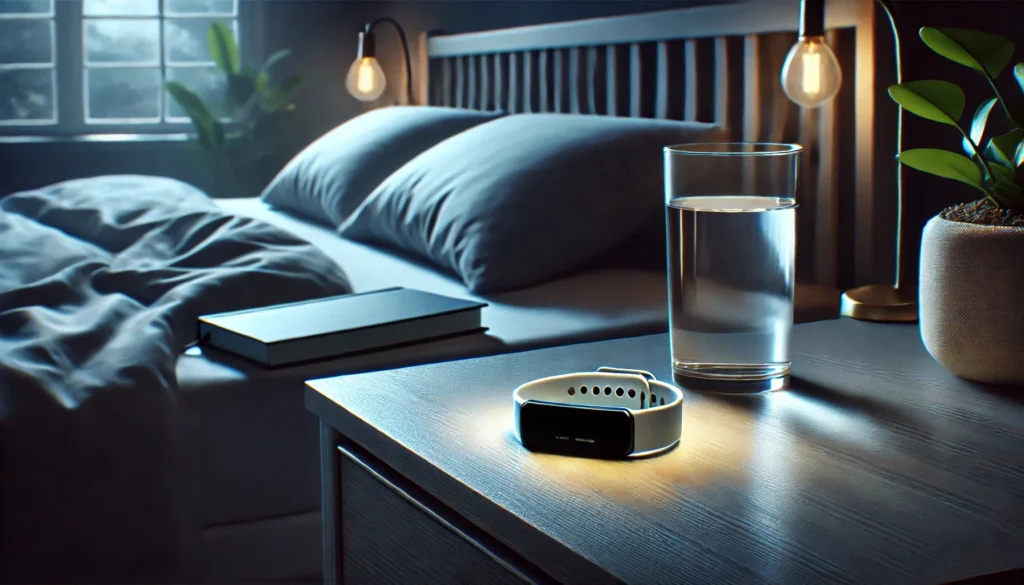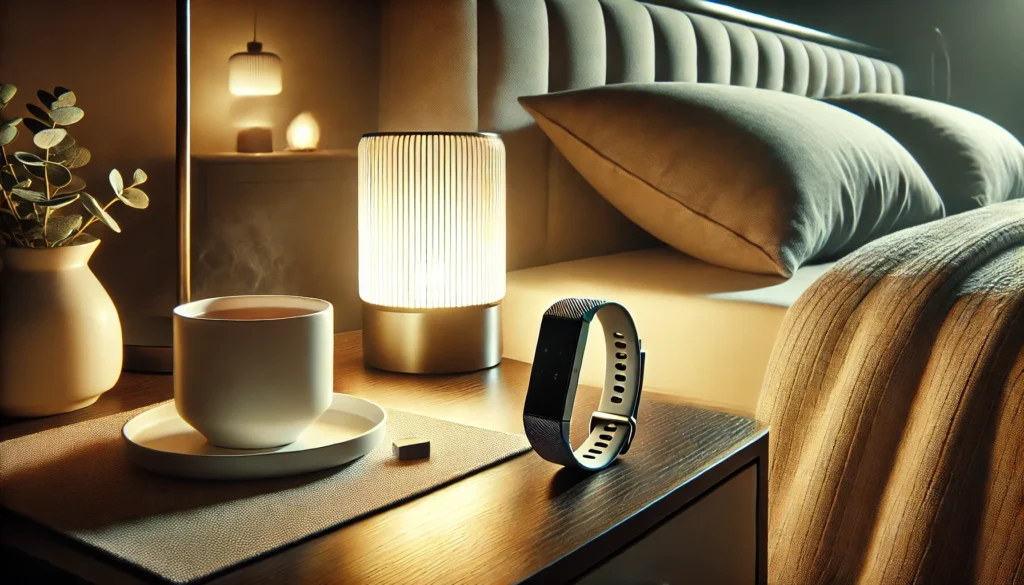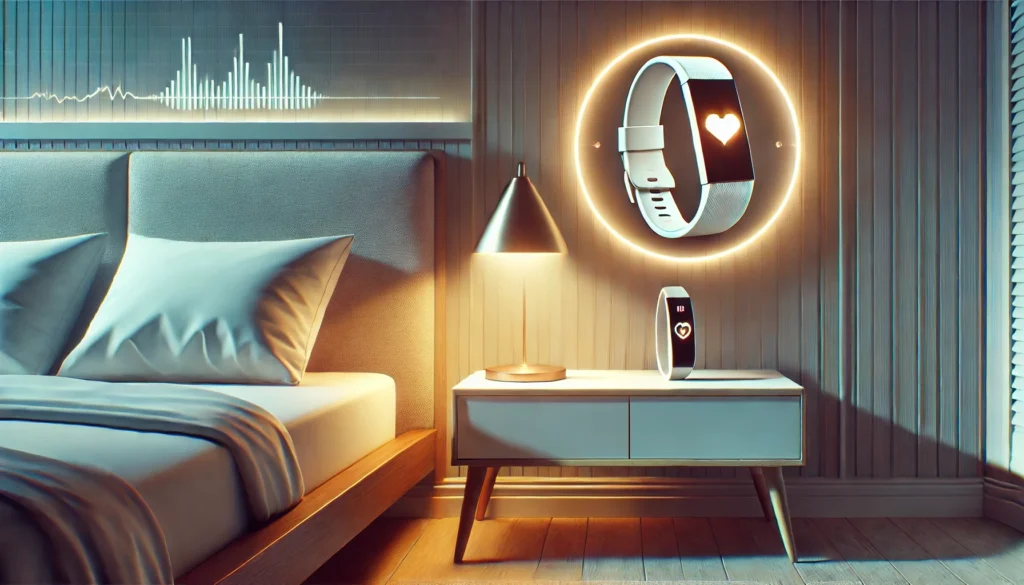In the realm of health and wellness, sleep is a pillar of good health, as crucial as nutrition and exercise. With the advent of wearable technology like Fitbit, tracking sleep patterns has become a popular method for individuals seeking to optimize their rest. However, users often encounter issues such as Fitbit not logging sleep or missing sleep data. In this article, we’ll delve into common Fitbit sleep tracking problems, explore their causes, and offer practical solutions to ensure your device accurately records your nightly repose.
You May Also Like: Ultimate Guide to Sleep Tracker Apps
Understanding Fitbit’s Sleep Tracking Technology
Fitbit devices utilize a combination of motion sensors and heart rate monitoring to estimate sleep stages. These sensors detect movement (or lack thereof) to determine when a user is asleep. The device uses algorithms to analyze this data, categorizing your rest into light, deep, and REM sleep stages. Despite this sophisticated technology, discrepancies can occur, leading to sleep tracking issues.
How Fitbit Analyzes Sleep Data
The core of Fitbit’s sleep tracking lies in its sensors, which monitor physical movements and heart rate throughout the night. These sensors are designed to detect even the slightest changes in your body, translating them into data that reflects your sleep stages. The algorithms employed by Fitbit analyze this data to estimate the duration and quality of your sleep, providing insights into your overall sleep health.
The Role of Heart Rate in Sleep Tracking
Heart rate plays a pivotal role in sleep tracking. During different sleep stages, your heart rate varies; for instance, it often decreases during deep sleep and increases during REM sleep. Fitbit’s heart rate sensors capture these variations to help determine your sleep cycles, offering a more comprehensive picture of your rest periods.
Limitations of Sensor Technology
Despite their advanced capabilities, Fitbit sensors are not infallible. Factors such as irregular heartbeats or excessive movement during sleep can lead to inaccurate readings. Furthermore, external factors like the type of mattress or even room temperature can influence sensor accuracy, occasionally resulting in discrepancies in the sleep data recorded.

Why Is My Fitbit Not Tracking My Sleep?
Several factors can contribute to your Fitbit not recording sleep data. Here are some common reasons and their explanations:
Device Firmware and Software Glitches
A common issue that affects sleep tracking accuracy is outdated firmware or software glitches. Fitbit regularly releases updates that enhance device performance and fix bugs. Ensuring that your device is running the latest firmware can prevent these common glitches and improve the reliability of your sleep data.
Incorrect Wearing Practices
For optimal performance, Fitbit devices should be worn snugly on your non-dominant wrist. Loose-fitting bands can result in incomplete data capture, as the sensors may fail to detect subtle movements. Ensuring the device is positioned correctly can significantly enhance tracking accuracy.
Battery Life and Charging Habits
Battery life is another critical factor. If your Fitbit’s battery is low or dies during the night, it may not log sleep data accurately. Charging your device adequately before going to bed is essential to prevent disruptions in data capture and ensure a full night’s sleep is recorded.
Common Fitbit Models and Their Unique Challenges
Fitbit offers several models with distinct features, and each model may present unique challenges when it comes to sleep tracking.
Fitbit Charge 5: Sensitivity and Calibration
The Fitbit Charge 5 is celebrated for its advanced health metrics. However, its high sensitivity can sometimes misinterpret minimal movements as wakefulness, leading to inconsistent sleep tracking. Users often need to recalibrate the device or adjust settings to align it with their actual sleep patterns.
Fitbit Versa Series: Firmware and Fit Adjustments
The Versa series is known for its comprehensive health monitoring features. However, sleep tracking accuracy can be a concern if the device is not updated or worn correctly. Regular firmware updates and ensuring a snug fit can help mitigate these issues, providing a more accurate sleep analysis.
Fitbit Inspire Series: Basic Features and Limitations
The Inspire series offers basic sleep tracking features, which may not be as detailed as those in higher-end models. Users may experience challenges in capturing in-depth sleep data, especially if the device settings are not optimized. Understanding the limitations of this series can help manage expectations and improve data interpretation.
Troubleshooting and Solutions
If you’re experiencing issues with your Fitbit’s sleep tracking, consider the following troubleshooting steps to resolve the problem:
Check and Configure Device Settings
Begin by verifying that your device settings are correctly configured. Ensure that sleep tracking is enabled in your Fitbit app and that all permissions required for data logging are granted. This step helps ensure that the device is set up to capture and record your sleep data accurately.
Regularly Update Your Device and App
Keeping your Fitbit device and app updated is crucial for optimal performance. Updates often include algorithm enhancements and bug fixes that can resolve common sleep tracking issues. Regularly checking for updates ensures your device benefits from the latest features and performance improvements.
Optimize Your Sleep Environment
External factors such as noise, light, and temperature can affect your sleep quality and, consequently, the accuracy of your Fitbit’s tracking. Creating a conducive sleep environment by minimizing distractions, using blackout curtains, and maintaining a comfortable room temperature can help improve the quality of your sleep and the accuracy of your device’s readings.
Maintain Proper Wrist Positioning
Ensure that your Fitbit is worn snugly on your non-dominant wrist to enhance tracking accuracy. Avoid wearing it too loosely, as this may cause the sensors to miss subtle movements. Proper positioning helps ensure that the device captures all necessary data throughout the night.
Seek Assistance from Fitbit Support
If problems persist despite troubleshooting efforts, consider reaching out to Fitbit support for assistance. They can provide additional insights and solutions tailored to your specific device and problem. Engaging with support can offer a more personalized approach to resolving persistent issues.

Understanding the Limitations and Future Prospects
While Fitbit devices offer valuable insights into sleep patterns, it’s important to understand their limitations. These wearables estimate sleep stages based on movement and heart rate, which may not always capture the full complexity of sleep architecture.
Comparing Fitbit to Clinical Sleep Studies
Current sleep tracking technology, including Fitbit, is not as precise as polysomnography, the gold standard for clinical sleep studies. While Fitbit provides estimations that may not always align with clinical measurements, it offers a practical overview for understanding general sleep patterns and identifying trends over time, making it a useful tool for everyday health monitoring.
The Evolution of Sleep Tracking Technology
The future of sleep tracking is promising, with advancements in sensor technology and machine learning algorithms. Future Fitbit models may offer enhanced accuracy and new features, such as oxygen level monitoring or integration with other health metrics, to further optimize your sleep experience and provide deeper insights into your sleep health.
Balancing Expectations with Technological Capabilities
Understanding the capabilities and limitations of your Fitbit device is crucial for realistic expectations. While it provides valuable insights, it is not a replacement for professional sleep studies. Balancing your expectations with the technological capabilities of your device can lead to a more satisfying and informed user experience.
Practical Advice for Optimizing Sleep
While technology plays a role in monitoring sleep, lifestyle factors significantly impact sleep quality. Here are some practical tips to enhance your sleep hygiene:
Establish a Consistent Sleep Routine
Going to bed and waking up at the same time each day helps regulate your body’s internal clock, promoting better sleep quality. Consistency in your sleep schedule can lead to improved sleep patterns and overall health benefits, making it an essential component of healthy sleep hygiene.
Create a Relaxing Bedtime Ritual
Engage in calming activities before bed, such as reading or meditation, to signal to your body that it’s time to wind down. Establishing a pre-sleep routine helps prepare your mind and body for rest, increasing the likelihood of falling asleep quickly and enjoying deeper, more restorative sleep.
Limit Screen Time and Exposure to Blue Light
The blue light emitted by screens can interfere with your body’s production of melatonin, a hormone that regulates sleep. Aim to disconnect from electronic devices at least an hour before bedtime to enhance melatonin production and improve sleep quality. Alternatives like reading a book or practicing relaxation techniques can promote better sleep.
Prioritize Physical Activity for Better Sleep
Regular exercise can improve sleep quality, but try to avoid vigorous workouts close to bedtime as they may have the opposite effect. Engaging in moderate physical activity during the day can help regulate your sleep cycle and promote more restful sleep. Activities such as yoga or light stretching in the evening can also be beneficial.
Manage Stress and Mental Well-being
Stress and mental health significantly impact sleep quality. Incorporating stress management techniques, such as mindfulness or deep breathing exercises, can improve your sleep. Addressing mental well-being as part of your sleep strategy can lead to more restful nights and better overall health.

Conclusion
Fitbit devices provide a convenient way to monitor sleep patterns, but users may encounter common issues such as missing data or inaccurate tracking. By understanding the underlying causes and implementing practical solutions, you can enhance your Fitbit’s performance and gain valuable insights into your sleep habits. As technology continues to evolve, the future of sleep tracking holds even greater potential for optimizing rest and overall well-being.
Further Reading:
How to Track Your Sleep on a Fitbit
Why Your Fitbit Is Making Your Sleep Worse?
What I Learned from Tracking My Sleep with Fitbit for Two Months
Important Note: The information contained in this article is for general informational purposes only, and should not be construed as health or medical advice, nor is it intended to diagnose, prevent, treat, or cure any disease or health condition. Before embarking on any diet, fitness regimen, or program of nutritional supplementation, it is advisable to consult your healthcare professional in order to determine its safety and probable efficacy in terms of your individual state of health.
Regarding Nutritional Supplements Or Other Non-Prescription Health Products: If any nutritional supplements or other non-prescription health products are mentioned in the foregoing article, any claims or statements made about them have not been evaluated by the U.S. Food and Drug Administration, and such nutritional supplements or other health products are not intended to diagnose, treat, cure, or prevent any disease.


